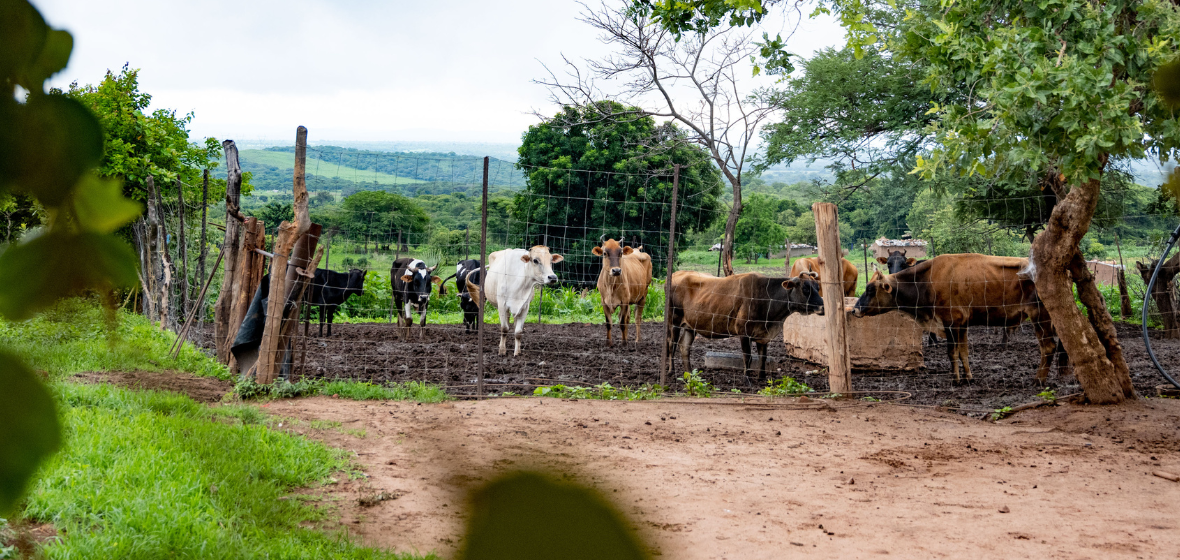
BLOGS, ARTICLES AND NEWS
Get updates directly from the CA4SH Global team and stakeholders
#Youth4Soil: A Global Uprising Cultivating Resilience from the Ground Up
At the third 2025 #Youth4Soil Solutions Showcase, held virtually on September 25, young people from around the world presented ground breaking initiatives that exemplify how young people, rooted in their communities and connected to the land, are cultivating fresh, innovative solutions to restore soil health. Reiterating that just like plants need healthy soil to grow, a sustainable future needs youth-led ideas to flourish. Youth and soil together form the bedrock of regeneration, resilience and renewal.
The Lanky Tomato Saplings
Cownomics® Technology, rooted in ancient Indian Vedic sciences focuses on the resurrection of native ecology in soil, water and air. Madhukar Swayambhu, Founder & Research Head, Vaidic Srijan LLP, shares a case study of the transformation of crops by enriching the health of Soil, Water and Air by creating a farm-level microclimate transforming the farm to chemical-free practices that are disease, pest and weather resilient. This is the story of the Lanky Tomato Saplings.
Coffee Krishi Taranga: A Digital Agronomist for Indian Coffee Farmers
Lankala Visweshwara Rao manages his 4-acre arabica coffee farm in Alluri Sitaramaraju district in Andhra Pradesh state in India. He has faced numerous challenges, including the dreaded white stem borer disease, a significant threat in the country’s coffee-growing regions, including Rao’s coffee farm.
Since 2023, Rao has used PxD’s Coffee Krishi Taranga service, a voice-based digital agricultural advisory service, which has provided him with insights and proactive measures to remove and dispose of infected plants in a way that will prevent the spread of larvae. Learn about the other features of the project!
Chhattisgarh Case Study: Healthy soil miraculously boosts chilli crops
In 2018, a village in Chhattisgarh, India struggled to meet market demands for chillies due to low yields and a short growing period. The villagers turned to Cownomics® Technology from Vaidic Srijan, an approach rooted in traditional Indian Vedic sciences that balances the health of soil, water and air for greater overall cohesion on the farm. Farmers were taken aback by how quickly they saw their crops respond.
Story and photos from Madhukar Swayambhu, Founder & Research Head, Vaidic Srijan LLP, a member of CA4SH from Bharat (India)
Crop Residue Management for Healthy Soils
Burning of unused crop residue is a common practice among farmers in India, contributing to carbon emissions and air pollution. BAIF and GIZ have partnered to establish a farmer producer organisation to convert this residue into biochar. Farmers sell their waste biomass to the FPO and purchase biochar to apply to their crop fields.
Innovations in the Mechanization of Fertilizer Deep Placement
“As part of the Assessment of State Fertilizer Scenario and Promoting Efficient Nutrient Management (ASPEN) project, the International Fertilizer Development Center (IFDC), in collaboration with the Department of Agriculture, Government of Assam, Punjab Agricultural University, Feed the Future, the U.S. Agency for International Development (USAID), and National Agro Industries, have developed a seed-and-fertilizer drill.”
ProSoil: uniting traditional and innovative practices to restore soil
In India, the Green Revolution lifted millions of people out of poverty, yet the large-scale use of chemical fertilisers left the country’s soils severely depleted. ProSoil shows how Indian farmers join traditional and innovative practices to not only restore their soils but also mitigate climate change.
City compost in India – from waste to healthy soil
Waste management and soil degradation are two of India’s most pressing environmental concerns. The Indian state of Maharashtra, together with two GIZ projects, tackles both through one market mechanism – ‘city compost’. Urban municipal waste is composted and used as organic fertiliser in agriculture. This relieves the cities’ waste management and enhances rural soils and in turn productivity.








